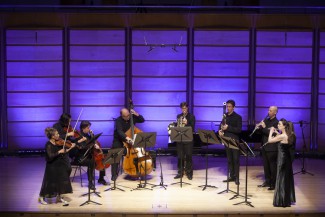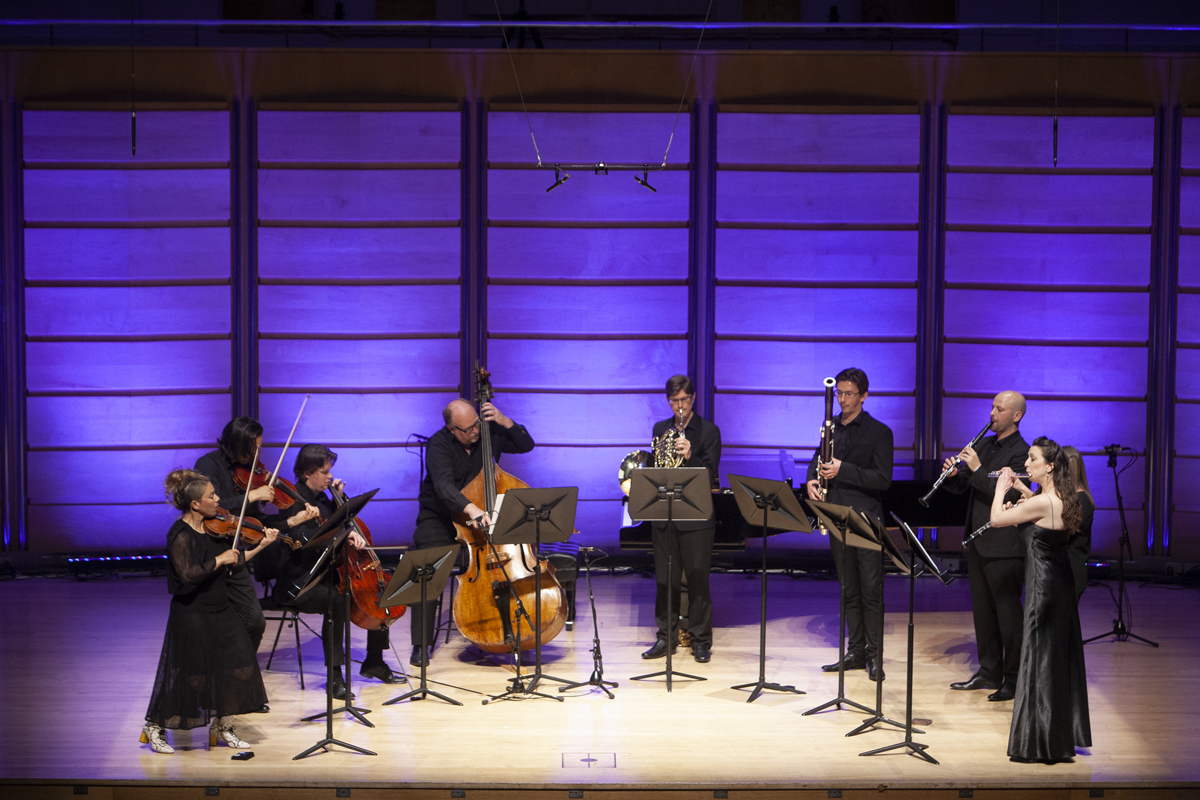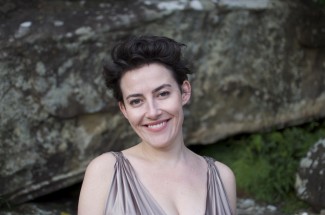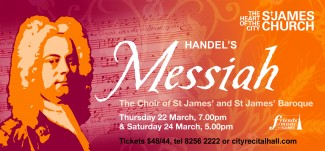Concert Review: Joy/ Omega Ensemble

Joy – Farrenc and Beethoven
Omega Ensemble,
City Recital Hall,
25 September, 2018
Schubert’s exquisite-single movement trio piece known as Notturno in E flat major D 897 was the curtain raiser to Omega Ensemble’s Joy which featured as well, music by Beethoven, Louise Farrenc and Kats-Chernin.
The music might have matched the twilight outside, but to draw this comparison would be spurious as Schubert did not conceive the nickname Notturno, which was generated posthumously by his publisher Diabelli. Nonetheless, this cameo, which was the original slow movement of the Piano Trio, No 1, was a slowly spinning solitaire, perfectly suited to opening the evening, performed with mesmerising beauty by core Omega Ensemble members violinist Veronique Serret, cellist Paul Stender and pianist Clemens Leske. Serret and Stender teamed up, together teasing the tempi and contrasting the slow sustained lines ornamented by semiquavers, while Leske played his part as much like a harp as the piano has ever been. The pizzicato judiciously eschewed playfulness and was played with a gravitas that underscored the languorous lines of the first subject.
Leske and Serret continued in the moment with Beethoven’s Sonata for Piano and Violin in F major, opus 24 ‘Spring,’ another posthumously nicknamed piece. A gracious Allegro, a tender Adagio, followed by the Scherzo and Rondo in a performance, that was brimming with vitality and uncompromised in its rhythmic interplay.
The second half of the evening highlighted the work of two women composers. Louise Farrence (1804 – 1875) made her mark in Paris as a composer, pianist, teacher and scholar. She descended from a long line of royal artists, who included several women painters. Even though women in the arts were extremely rare, she surmounted the social prejudices of the time and aged 15, began training in composition and orchestration with Reicha at the Paris Conservatoire. In 1842, she was appointed professor of piano, a post she held for three decades and the only woman at the Conservatoire in the 19th century to hold a such a prestigious position. A venerated teacher, her compositional output was not great. However, despite being a teacher of piano, writing chamber music was her strength and the Nonet for Strings and Winds in E flat major opus 38 played by Omega Ensemble this evening, won her fame in opera-mad Paris. Violinist Joseph Joachim, already famous, took part in the 1850 première.
Farrenc’s nonet is a delightful piece in four movements for violin (Serret), viola (Neil Thompson), cello (Paul Stender), double bass (Alex Henery), French horn (Michael Dixon), bassoon (Todd Gibson-Cornish), clarinet (Omega ensemble Co-Artistic Director, David Rowden), oboe (Nicola Bell) and flute (Sally Walker). The nonet operates at three levels – soloistic passages highlighting individual players, small combinations of two and three players and the larger groupings, contrasting the string section with the wind section and horn. Ably led by Serret from the violin, the nine musicians performed brilliantly, with empathy and tremendous cohesion, whether in concertante or full ensemble configuration.
Clemens Leske joined the ensemble at the piano for Elena Kats-Chernin’s vibrant Russian Rag, in a special arrangement for Omega Ensemble – a distinct advantage of collaborating with an active composer. Complete with hints of Ragtime, the Cakewalk and Klezmer played in seductive style, we could have been in any 1920’s Speakeasy – a light-hearted but dynamic end to an evening in which Omega Ensemble demonstrated the versatility of chamber music performed by a star cast.
Shamistha de Soysa for SoundsLikeSydney©







